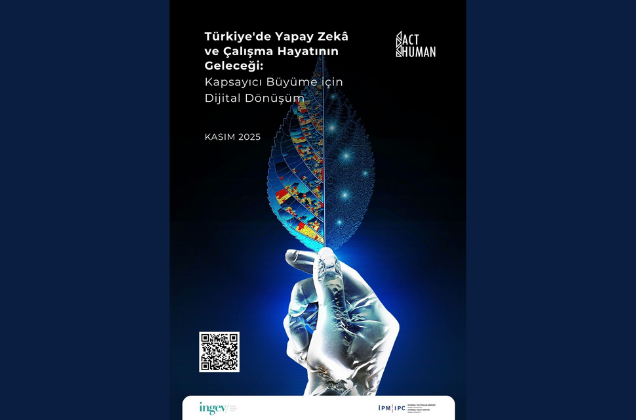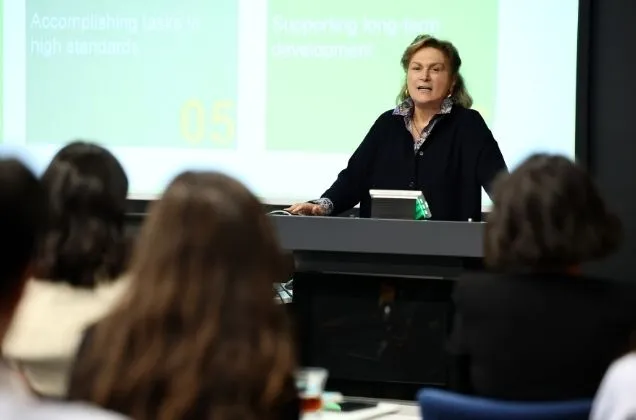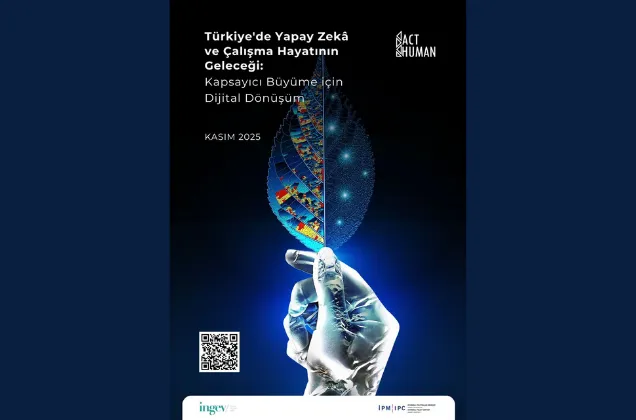24/11/2025
The report, "Humans in the Age of Artificial Intelligence: Rethinking Social Equality," prepared by Emrehan Aktuğ from Sabancı University as rapporteur as part of the ActHuman Social Inclusion Initiative, implemented by IPC (Istanbul Policy Center) in collaboration with INGEV, was shared at a launch event held on November 20, 2025.
The report comprehensively examines the impacts of artificial intelligence and automation on Türkiye's labor market, economic structure, and social fabric. The Executive Summary specifically highlights Türkiye's "dual reality," the human capital gap, digitalization performance, and the potential for AI to exacerbate inequality.
Report Key Findings
Türkiye's Dual Digital Reality
One of the report's key findings is that the Turkish economy operates within a "dual reality." While large-scale companies have made significant progress in digitalization and AI adaptation, SMEs, the backbone of employment, are unprepared for the AI revolution due to their low adoption of basic digital tools such as CRM/ERP. This asymmetrical structure will play a critical role in deepening inequality in the future.
The Human Capital Paradox
While Türkiye has a young and technology-savvy population, the report indicates that the education system and labor market struggle to support this potential. Low PISA scores, high NEET rates, and low female labor force participation are hindering the widespread adoption of the skills required for digital transformation.
AI Risks Deepening Inequality
The report emphasizes that, in a transformation process without intervention, AI could:
- increase income and wealth inequality,
- deepen geographical inequality,
- exacerbate social vulnerabilities due to algorithmic biases,
- and widen the digital divide between countries.
These findings indicate that AI technologies should be considered not only in terms of efficiency but also in the context of social justice.
Three Scenarios and Policy Recommendations
The report identifies three possible future scenarios for Türkiye:
“Deepening Inequality,” “Divided Future,” and “Digital Leap.”
The most positive scenario, “Digital Leap,” points to an inclusive growth path made possible by strengthening the digital foundations of SMEs, human capital reform, and reducing the informal economy. Among the recommended policy packages, the expansion of the SME Digital Transformation Program, the establishment of a national lifelong learning infrastructure, and the adaptation of education curricula to critical skills are prominent.
ActHuman Initiative's Seventh Theme: A New Area of Discussion on Social Equality
The seventh theme of the ActHuman Social Inclusion Initiative focuses on rethinking the concept of social equality in the age of artificial intelligence. This study, prepared by Emrehan Aktuğ from Sabancı University as rapporteur, serves as an important reference for both policymakers and academia.
To read the report: https://ipc.sabanciuniv.edu/tr/yayinlar




